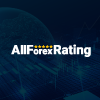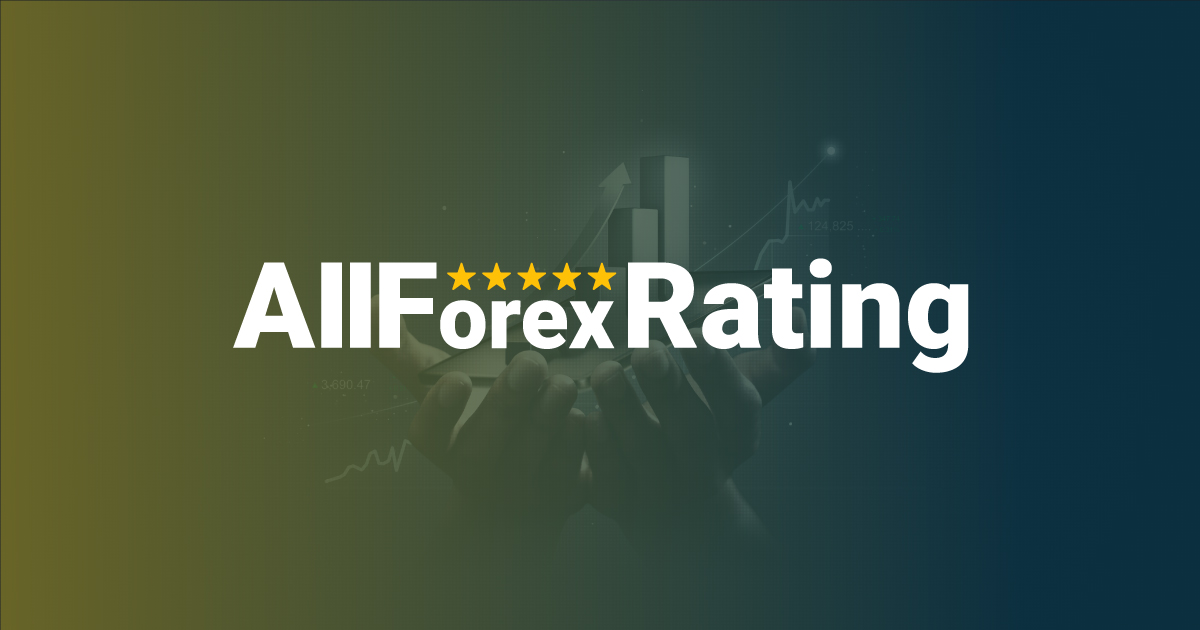Is the Forex Broker Licensed and Regulated
Is the Forex Broker Licensed and Regulated
When you are looking for a new forex broker to trade with, you need to make sure that they are licensed and regulated. If a forex broker is not licensed and regulated, then they are not a legitimate forex broker.
-

- by ALLFOREXRATING.COM
- 30th June 2022 | Post Views: 1688

Introduction
Forex brokers are subject to stringent regulations imposed by financial authorities in order to protect investors from fraud and other illegal activities. These regulations vary from country to country, but most of them require brokers to maintain segregated accounts for client funds, disclose their commissions and fees, and submit to regular audits by independent agencies.
What are Forex Brokers Regulations?
Forex brokers regulations are the rules and guidelines that a forex broker must follow in order to operate. These regulations are set by the country in which the broker is located, and they cover a wide range of topics, including how the broker must operate, what type of information they must provide to their clients, and how they must protect their clients' money.
Overall, these rules and guidelines are designed to protect investors from fraud and to ensure that financial markets operate transparently and efficiently.
Is the Forex Broker Licensed and Regulated?
When you are looking for a new forex broker to trade with, you need to make sure that they are licensed and regulated. If a forex broker is not licensed and regulated, then they are not a legitimate forex broker. If they are not a legitimate forex broker, then they are not a good choice to trade with.
Why are Forex brokers regulated?
The main purpose of forex broker regulation is to protect the investors and to ensure that the brokers are operating in a fair and transparent manner. By complying with the rules and regulations, forex brokers can provide their clients with a safe and secure environment in which to trade.
By being a regulated entity, brokers can be held to certain standards and held accountable if they fail to meet those standards. This protects both the brokers and their clients.
Overall, broker regulation is in place to protect investors, ensure fair practices, and provide some measure of protection for the brokers themselves. By having these regulations in place, it helps to create a more stable and trustworthy industry for everyone involved.
Forex Regulations by Geography
Key financial regulatory centers like FCA in the United Kingdom, ASIC in Australia, CySec in Cyprus and the NFA in the United States usually have stricter policies in their regulatory enforcement to secure the integrity of the financial industry.
In addition to Forex regulation from bodies established by national governments, some brokers find it important to acquire memberships from professional and cross-border entities.
Below are some of the most reputable Forex Regulatory Organizations Worldwide. To know more about regulations, simply click on your desired page.
Australia:
Australian Securities and Investment Commission
Canada:
Investment Industry Regulatory Organization of Canada (IIROC)
British Columbia Securities Commission
Cyprus:
Cyprus Securities and Exchange Commission
Denmark:
European Monetary Union:
Markets in Financial Instruments Directive
France:
Autorité des Marchés Financiers
Autorité de Contrôle Prudentiel (ACP)
Germany:
Federal Financial Supervisory Authority
Hong Kong SAR:
Securities and Futures Commission
India:
Indonesia:
Badan Pengawas Perdagangan Berjangka Komoditi
Italy:
Commissione Nazionale per le Società e la Borsa
Japan:
Japan Investor Protection Fund
The Financial Futures Association of Japan
Japan Securities Dealers Association
Macau:
Malaysia:
Russia:
The Commission on Regulation of Financial Markets Participants Relationships
Singapore:
Monetary Authority of Singapore
South Africa:
Financial Services Conduct Authority
Spain:
Comisión Nacional del Mercado de Valores
Sweden:
Swedish Financial Supervisory Authority (Finansinspektionen)
Switzerland:
Swiss Financial Market Supervisory Authority (FINMA)
Groupement Suisse des Conseils en Gestion Indépendants
Association Romande des Intermediares Financiers
Swiss Federal Department of Finance
Organisme d'autorégulation des Gerants de Patrimoine
Turkey:
Capital Markets Board of Turkey (CMB)
United Arab Emirates:
Central Bank of the United Arab Emirates
Dubai Financial Services Authority
United Kingdom:
United States:
Commodities and Futures Trading Commission
Office of the Comptroller of the Currency
Commodities and Futures Trading Commission
Securities and Exchanges Commission
Functions of Forex Regulatory Bodies
There are three main types of regulatory bodies in Forex market regulation: Independent regulatory commissions, Executive agencies, and Government corporations.
Forex regulatory bodies operate the Forex market so that the brokers are maintain all the rules and regulations for trading. Forex regulatory bodies implement policies, enforce rules, give out licenses to traders and brokers, provide customer protection services and take action against all illegal activities happening in this market.
They also provide training programs for Forex brokers which help them in providing advisory services to retail customers.
FAQs
How do you check if a broker is regulated?
The best way to check if a broker is regulated is to visit the broker's website and look for a disclosure that states which regulator supervises the broker's activities.
Can a broker steal your money?
A broker cannot steal your money if it is Licensed and Regulated.
How do I know if a forex broker is legit?
The best way to know if a forex broker is legit is to check with the National Futures Association. You can also check with your local financial regulator.
Do forex brokers cheat traders?
There are some forex brokers that may cheat traders, but there are also many reputable brokers who provide fair and honest services. It is important to do your research and choose a broker that you can trust and they have license.
Are forex brokers honest?
There are many different types of forex brokers, and it is difficult to make a general statement about their honesty. Some forex brokers may be dishonest in their practices, while others may be completely honest. It is important to do your own research and due diligence when selecting a forex broker.
Are unregulated brokers illegal?
There is no regulatory body that makes trading with unregulated brokers illegal. However, it is important to note that trading with an unregulated broker comes with a high level of risk, as there is no guarantee that the broker will adhere to fair practices.
What happens if a broker is not regulated?
If a broker is not regulated, it may not be held to the same standards as a regulated broker. This could mean that the broker is not required to follow certain rules and regulations, which could put investors at risk.
Which forex broker is legal in use?
There is no definitive answer to this question, as the legal status of forex trading in the US can vary depending on the specific broker in question. However, it is generally accepted that forex trading is legal in the US, provided that the broker in question is properly regulated by the relevant financial authorities.
What's the difference between a regulated and unregulated broker?
A regulated broker is one that is required to follow specific regulations set by a governmental body in order to operate. An unregulated broker is not subject to such regulations.
What happens if you trade with an unregulated broker?
If you trade with an unregulated broker, you may not be protected if the broker becomes insolvent.
Why are brokers regulated?
Brokers are regulated to protect investors from fraud and to ensure that they are treated fairly.
What is a regulation in brokers?
A broker is an individual or firm that charges a fee or commission for executing buy and sell orders submitted by an investor. Regulation of brokers is meant to protect investors from fraudulent or unscrupulous brokers, as well as to ensure a fair and orderly marketplace.
Who regulates brokers?
The brokers are regulated by the Financial Regulatory Authority.
How do I get FCA approved?
There is no one-size-fits-all answer to this question, as the approval process for financial institutions can vary depending on the country in which they operate. However, some tips on how to get started include contacting the regulator in your jurisdiction and providing them with the necessary documentation.
Why should you not go for an unregulated broker?
An unregulated broker is not subject to the same rules and regulations as a regulated broker. This means that an unregulated broker can engage in unethical or illegal practices without consequences.
Conclusion
Forex brokers are subject to numerous regulations designed to protect investors and ensure the integrity of the marketplace. These regulations are constantly evolving, and brokers must keep up-to-date in order to remain compliant. The failure to do so can result in severe penalties, including the loss of their license to operate. While these regulations can be onerous, they are essential in ensuring that the Forex market is a safe and transparent place for all participants.
Write a Comment
Is the Forex Broker Licensed and Regulated
When you are looking for a new forex broker to trade with, you need to make sure that they are licensed and regulated. If a forex broker is not licensed and regulated, then they are not a legitimate forex broker.

Introduction
Forex brokers are subject to stringent regulations imposed by financial authorities in order to protect investors from fraud and other illegal activities. These regulations vary from country to country, but most of them require brokers to maintain segregated accounts for client funds, disclose their commissions and fees, and submit to regular audits by independent agencies.
What are Forex Brokers Regulations?
Forex brokers regulations are the rules and guidelines that a forex broker must follow in order to operate. These regulations are set by the country in which the broker is located, and they cover a wide range of topics, including how the broker must operate, what type of information they must provide to their clients, and how they must protect their clients' money.
Overall, these rules and guidelines are designed to protect investors from fraud and to ensure that financial markets operate transparently and efficiently.
Is the Forex Broker Licensed and Regulated?
When you are looking for a new forex broker to trade with, you need to make sure that they are licensed and regulated. If a forex broker is not licensed and regulated, then they are not a legitimate forex broker. If they are not a legitimate forex broker, then they are not a good choice to trade with.
Why are Forex brokers regulated?
The main purpose of forex broker regulation is to protect the investors and to ensure that the brokers are operating in a fair and transparent manner. By complying with the rules and regulations, forex brokers can provide their clients with a safe and secure environment in which to trade.
By being a regulated entity, brokers can be held to certain standards and held accountable if they fail to meet those standards. This protects both the brokers and their clients.
Overall, broker regulation is in place to protect investors, ensure fair practices, and provide some measure of protection for the brokers themselves. By having these regulations in place, it helps to create a more stable and trustworthy industry for everyone involved.
Forex Regulations by Geography
Key financial regulatory centers like FCA in the United Kingdom, ASIC in Australia, CySec in Cyprus and the NFA in the United States usually have stricter policies in their regulatory enforcement to secure the integrity of the financial industry.
In addition to Forex regulation from bodies established by national governments, some brokers find it important to acquire memberships from professional and cross-border entities.
Below are some of the most reputable Forex Regulatory Organizations Worldwide. To know more about regulations, simply click on your desired page.
Australia:
Australian Securities and Investment Commission
Canada:
Investment Industry Regulatory Organization of Canada (IIROC)
British Columbia Securities Commission
Cyprus:
Cyprus Securities and Exchange Commission
Denmark:
European Monetary Union:
Markets in Financial Instruments Directive
France:
Autorité des Marchés Financiers
Autorité de Contrôle Prudentiel (ACP)
Germany:
Federal Financial Supervisory Authority
Hong Kong SAR:
Securities and Futures Commission
India:
Indonesia:
Badan Pengawas Perdagangan Berjangka Komoditi
Italy:
Commissione Nazionale per le Società e la Borsa
Japan:
Japan Investor Protection Fund
The Financial Futures Association of Japan
Japan Securities Dealers Association
Macau:
Malaysia:
Russia:
The Commission on Regulation of Financial Markets Participants Relationships
Singapore:
Monetary Authority of Singapore
South Africa:
Financial Services Conduct Authority
Spain:
Comisión Nacional del Mercado de Valores
Sweden:
Swedish Financial Supervisory Authority (Finansinspektionen)
Switzerland:
Swiss Financial Market Supervisory Authority (FINMA)
Groupement Suisse des Conseils en Gestion Indépendants
Association Romande des Intermediares Financiers
Swiss Federal Department of Finance
Organisme d'autorégulation des Gerants de Patrimoine
Turkey:
Capital Markets Board of Turkey (CMB)
United Arab Emirates:
Central Bank of the United Arab Emirates
Dubai Financial Services Authority
United Kingdom:
United States:
Commodities and Futures Trading Commission
Office of the Comptroller of the Currency
Commodities and Futures Trading Commission
Securities and Exchanges Commission
Functions of Forex Regulatory Bodies
There are three main types of regulatory bodies in Forex market regulation: Independent regulatory commissions, Executive agencies, and Government corporations.
Forex regulatory bodies operate the Forex market so that the brokers are maintain all the rules and regulations for trading. Forex regulatory bodies implement policies, enforce rules, give out licenses to traders and brokers, provide customer protection services and take action against all illegal activities happening in this market.
They also provide training programs for Forex brokers which help them in providing advisory services to retail customers.
FAQs
How do you check if a broker is regulated?
The best way to check if a broker is regulated is to visit the broker's website and look for a disclosure that states which regulator supervises the broker's activities.
Can a broker steal your money?
A broker cannot steal your money if it is Licensed and Regulated.
How do I know if a forex broker is legit?
The best way to know if a forex broker is legit is to check with the National Futures Association. You can also check with your local financial regulator.
Do forex brokers cheat traders?
There are some forex brokers that may cheat traders, but there are also many reputable brokers who provide fair and honest services. It is important to do your research and choose a broker that you can trust and they have license.
Are forex brokers honest?
There are many different types of forex brokers, and it is difficult to make a general statement about their honesty. Some forex brokers may be dishonest in their practices, while others may be completely honest. It is important to do your own research and due diligence when selecting a forex broker.
Are unregulated brokers illegal?
There is no regulatory body that makes trading with unregulated brokers illegal. However, it is important to note that trading with an unregulated broker comes with a high level of risk, as there is no guarantee that the broker will adhere to fair practices.
What happens if a broker is not regulated?
If a broker is not regulated, it may not be held to the same standards as a regulated broker. This could mean that the broker is not required to follow certain rules and regulations, which could put investors at risk.
Which forex broker is legal in use?
There is no definitive answer to this question, as the legal status of forex trading in the US can vary depending on the specific broker in question. However, it is generally accepted that forex trading is legal in the US, provided that the broker in question is properly regulated by the relevant financial authorities.
What's the difference between a regulated and unregulated broker?
A regulated broker is one that is required to follow specific regulations set by a governmental body in order to operate. An unregulated broker is not subject to such regulations.
What happens if you trade with an unregulated broker?
If you trade with an unregulated broker, you may not be protected if the broker becomes insolvent.
Why are brokers regulated?
Brokers are regulated to protect investors from fraud and to ensure that they are treated fairly.
What is a regulation in brokers?
A broker is an individual or firm that charges a fee or commission for executing buy and sell orders submitted by an investor. Regulation of brokers is meant to protect investors from fraudulent or unscrupulous brokers, as well as to ensure a fair and orderly marketplace.
Who regulates brokers?
The brokers are regulated by the Financial Regulatory Authority.
How do I get FCA approved?
There is no one-size-fits-all answer to this question, as the approval process for financial institutions can vary depending on the country in which they operate. However, some tips on how to get started include contacting the regulator in your jurisdiction and providing them with the necessary documentation.
Why should you not go for an unregulated broker?
An unregulated broker is not subject to the same rules and regulations as a regulated broker. This means that an unregulated broker can engage in unethical or illegal practices without consequences.
Conclusion
Forex brokers are subject to numerous regulations designed to protect investors and ensure the integrity of the marketplace. These regulations are constantly evolving, and brokers must keep up-to-date in order to remain compliant. The failure to do so can result in severe penalties, including the loss of their license to operate. While these regulations can be onerous, they are essential in ensuring that the Forex market is a safe and transparent place for all participants.
| # | Forex Broker | Year | Status | For | Against | Type | Regulation | Leverage | Account | Advisors | ||
| 1 |  |
JustMarkets | 2012 | 36% | 4% | ECN/STP | FSA, CySEC, FSCA, FSC | 1:3000* | 1 | Yes | ||
|---|---|---|---|---|---|---|---|---|---|---|---|---|
| 2 |  |
Hantec Markets | 1990 | 35% | 6% | ECN/STP | ASIC, FCA, FSA-Japan, FSC, JSC | 1:2000* | 100 | Yes | ||
| 3 |  |
Valetax | 2023 | 35% | 1% | ECN/STD | FSC | 1:2000* | 10 | Yes | ||
| 4 |  |
KCM Trade | 2016 | 32% | 3% | ECN/STD | FSC | 1:400* | 100 | Yes | ||
| 5 |  |
Plotio | 1983 | 31% | 2% | STP | HKGX, ASIC, SCB | 1:300* | 200 | Yes | ||
| 6 |  |
FISG | 2011 | 30% | 1% | ECN/STD | FSA, CySEC, ASIC | 1:500 | 0.01 | Yes | ||
| 7 |  |
ATFX | 2017 | 25% | 3% | Broker/NDD | FCA, CySEC, FSCA | 1:400* | 100 | Yes | ||
| 8 |  |
Octa | 2011 | 20% | 3% | ECN/STD | Regulation: CySEC, MISA, FSCA and FSC | 1:1000* | 5 | Yes | ||
| 9 |  |
Youhodler | 2018 | 20% | 2% | Exchange | EU (Swiss) licensed | Up to 1:500 | 100 | Yes | ||
| 10 |  |
Uniglobe markets | 2015 | 20% | 3% | ECN/STP | Yes | Up to 1:500 | 100 | Yes | ||
| 11 |  |
IEXS | 2023 | 20% | 6% | ECN/STP | ASIC, FCA | Up to 1:500 | 100 | Yes | ||
| 12 |  |
TradeEU | 2023 | 18% | 4% | CFDs | CySEC | 1:300* | 100 | Yes | ||
| 13 |  |
RoboForex | 2009 | 16% | 4% | ECN/STD | FSC, Number 000138/333 | 1:2000* | 10 | Yes | ||
| 14 |  |
Axiory | 2011 | 15% | 5% | Broker, NDD | IFSC, FSC, FCA (UK) | 1:777* | 10 | Yes | ||
| 15 |  |
FBS | 2009 | 13% | 4% | ECN/STD | IFSC, CySEC, ASIC, FSCA | 1:3000* | 100 | Yes |











